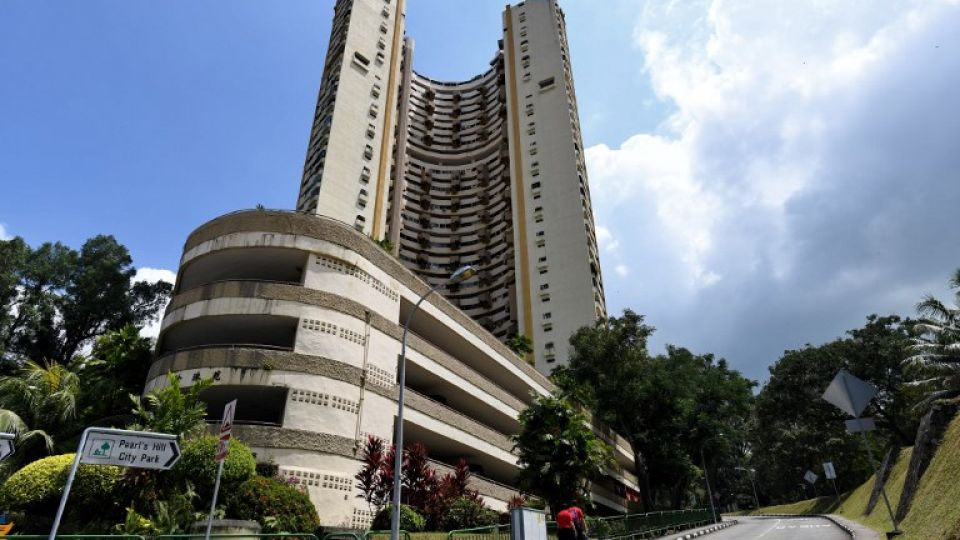February 3, 2020
Trade and Industry Minister Chan Chun Sing said protecting the jobs of Singaporeans and ensuring the survival of businesses will be the Government’s primary focus.
Protecting the jobs of Singaporeans and ensuring the survival of businesses will be the Government’s primary focus, said Trade and Industry Minister Chan Chun Sing, as the country hunkers down for what could be a protracted battle with the novel coronavirus.
“I would like to reassure Singaporean businesses and workers that we stand together with them. We do have the means to help them tide over this difficult moment but we must do this with a long-term perspective,” said Mr Chan.
The impact of the Wuhan virus could be “wider, deeper and longer” than that of the severe acute respiratory syndrome (Sars) epidemic in 2003, and Singaporeans need to be mentally prepared for this, he said, adding that measures put in place must be sustainable.
He was speaking to reporters after visiting Oasia Hotel Downtown with Manpower Minister Josephine Teo, where they inspected precautionary measures put in place by the hotel after a hotel guest was found to have come down with the virus.
Singapore’s 13th case of the novel coronavirus, a 73-year-old female Chinese national, had stayed there.
Mr Chan’s comments echoed those he made earlier in the day at a Chinese New Year lunch for residents of Tanjong Pagar GRC and Radin Mas constituency.
In that speech, Mr Chan called on Singaporeans to gird themselves “psychologically, emotionally, economically and socially” as the battle with the virus could be one for the long haul.
Previous epidemics have lasted from a few months to a year, but they have had wide implications, disrupting global supply chains and affecting industries from tourism to manufacturing.
“Because we don’t know how long this situation will last, all the measures we take, be it in health, or economics and jobs… must be sustainable. We cannot just be taking measures for the short haul, thinking that it will blow over,” said Mr Chan.
The novel coronavirus, which first emerged in the Chinese city of Wuhan in December last year, has so far proved to be more infectious than Sars.
It seems, however, to be less deadly, with a fatality rate of 2 to 3 per cent in China, said Mr Chan. On the other hand, Sars had a fatality rate of about 9.6 per cent.
China has been grappling with containing the infectious virus, which has sickened thousands and killed over 300 people. So far 18 people, including two Singaporeans, have been found infected by the virus here.
Later at the hotel, while Mr Chan said it was still too early to to put a number to the economic hit from the outbreak, he said the Government would be taking several measures with immediate effect to help tourism businesses mitigate the impact.
It will waive licence fees for hotels, travel agents and tourist guides, as well as defray the cleaning and disinfection costs of hotels that had confirmed and suspected cases of the novel coronavirus.
This initial package is part of a full raft of measures that will be detailed by Finance Minister Heng Swee Keat at the upcoming Budget speech on Feb 18.
Hotel operators typically have to pay between $300 and $500 to renew their licences yearly, depending on the number of rooms each hotel has.
Those hotels where suspected and confirmed cases of the virus had been found, have also had to do enhanced environmental cleaning and disinfection – the Singapore Tourism Board will bear up to half the cost of such cleaning fees.
This is capped at $20,000 per establishment with confirmed cases, and up to $10,000 per establishment with suspected cases. The financial assistance will be backdated to Jan 23, when the first case of coronavirus infection was detected in Singapore.
The Government is also studying the possibility of giving bridging loans to help businesses with cash flow issues, he said.
The tourism industry is one of the more heavily impacted, said Mr Chan, noting that for some businesses, the bulk of their revenues come from the Chinese market.
Mrs Teo also urged those who have been placed on a leave of absence because they have returned from mainland China to stay at home and minimise social contact.
“If we are unwell, and we show up whether at restaurants or any other places where there are front-line workers and we expect service from them, we could put them in an awkward position,” she said.
She added that trade associations will be issuing advisories soon that will give front-line workers guidance on how to deal with customers who are unwell.


